Annual reports / 2020 Year in review
2020 Year in review
2020 has been an enormous challenge for political and public health systems and organizations around the world.
This year, Resolve to Save Lives worked with partners and governments to improve understanding of and response to the pandemic globally and continued our effort to prevent heart attacks and strokes.
COVID-19
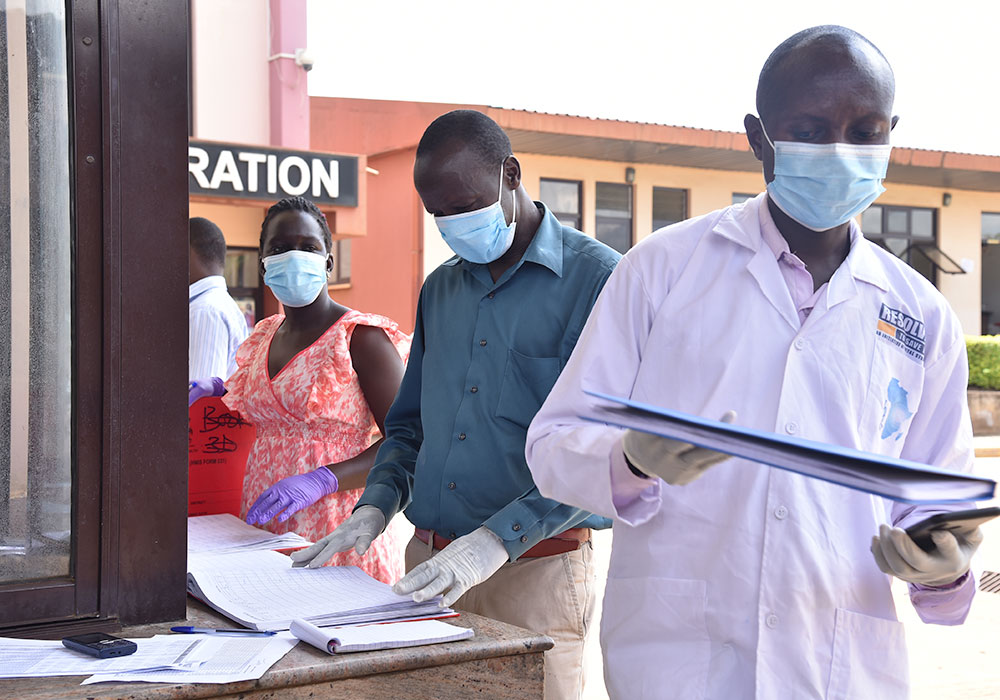
Healthcare worker safety
Resolve to Save Lives developed an on-the-ground health care worker training course focused on infection prevention and control in March and worked with more than two dozen partners in low- and middle-income countries to train 35,000 staff in 7,000 facilities throughout Africa. Four million patients were safely screened for COVID-19 at facilities we support.
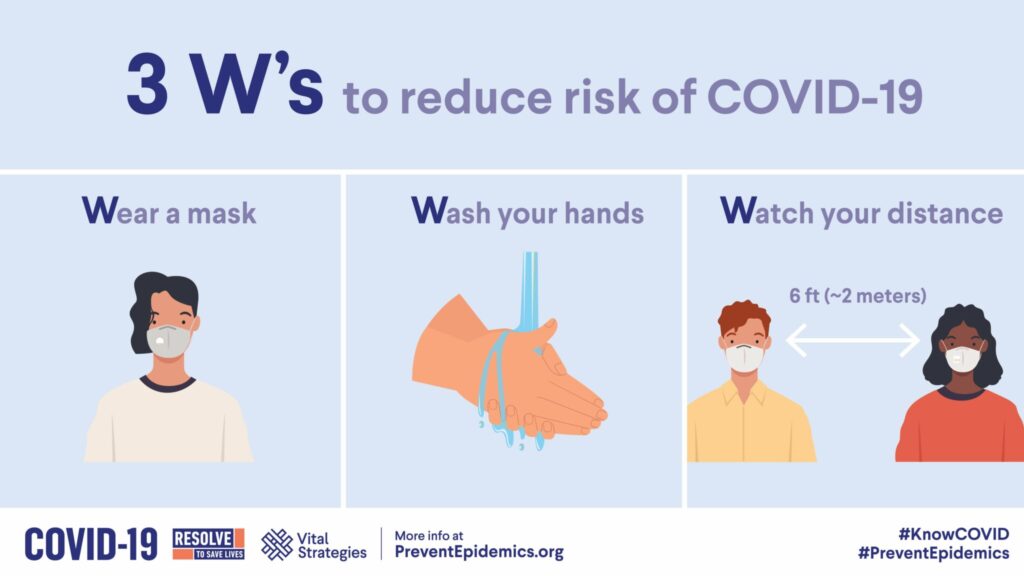
Data for Decision Making
Resolve to Save Lives and Vital Strategies experts produced timely tools, guidance and analysis on COVID-19 that informed the response of governments across the globe. We produced 22 guidance documents, including best practice reports on the impact of public health and social measures, boxing in the virus, establishing alert level systems, safely reopening schools, communicating the importance of wearing masks and implementing mask mandates, measuring and reporting essential COVID-19 indicators, and implementing rapid mortality surveillance programs. These reports have been highly regarded and continue to set the agenda for strong public health systems during and beyond the COVID-19 response. In addition, we hosted 25 webinars to describe new approaches to the COVID-19 response and established a Weekly Science Newsletter that is sent to nearly 10,000 subscribers.
Resolve to Save Lives and Vital Strategies facilitated the development of the Partnership for Evidence-Based Response to COVID-19 (PERC), a public-private partnership that supports evidence-based measures to reduce the impact of COVID-19 on African Union (AU) Member States. PERC collected social, economic, epidemiological, population movement and security data from 20 AU Member States to help determine the acceptability, impact and effectiveness of public health and social measures for COVID-19.

Leveraging Technology to Enhance the COVID-19 response
Bringing together the country’s leading tech experts, in 2020 RTSL applied lessons learned from the Simple app to develop new software to enhance jurisdiction’s response to COVID-19. Our team developed tools such as Epi Viaduct, which quickly processes, cleans and transmits lab data into case management systems and Epi Locator, which helps case investigators and contact tracers find information faster by searching multiple databases at once.
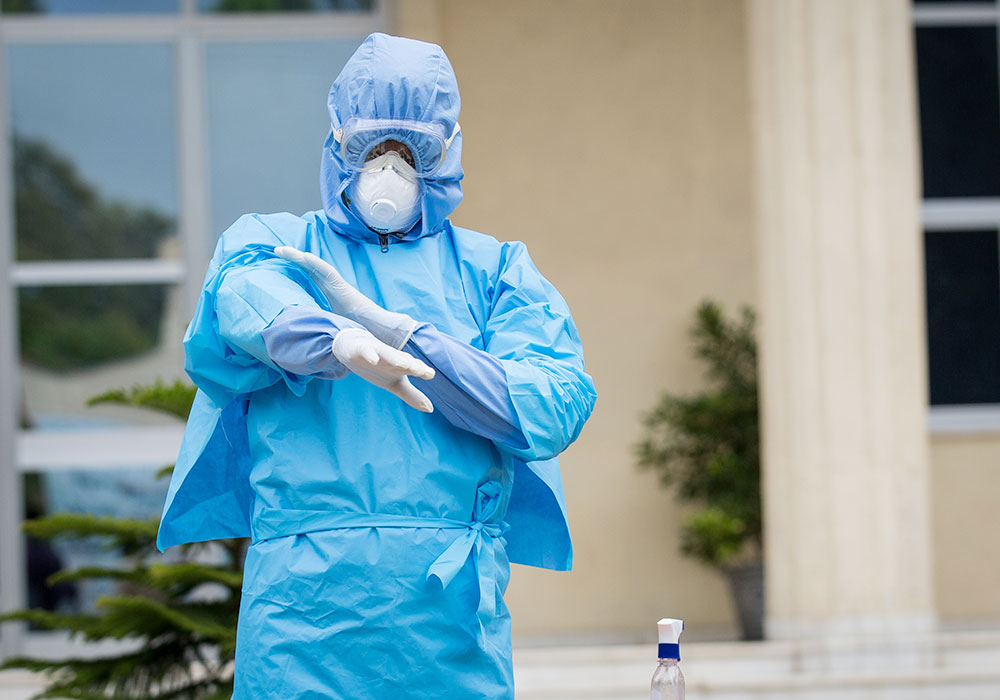
Global Preparedness and Response
RTSL’s team of infectious disease and emergency response experts have faced health crises before and understand what countries need to respond quickly and effectively. As soon as COVID-19 emerged we made rapid, flexible funds available to 21 countries. These grants allowed governments to surge support where needed—from fuel for lab transport vehicles, to mass media campaigns, to rapid hiring of contact tracers. Because of these grants, 15,000 cases of COVID-19 were investigated in Africa and 35,000 contacts were traced, 60,000 lab samples were transported, 3,000 response staff and 1,500 lab staff were trained and 194 COVID-19 molecular labs were activated.
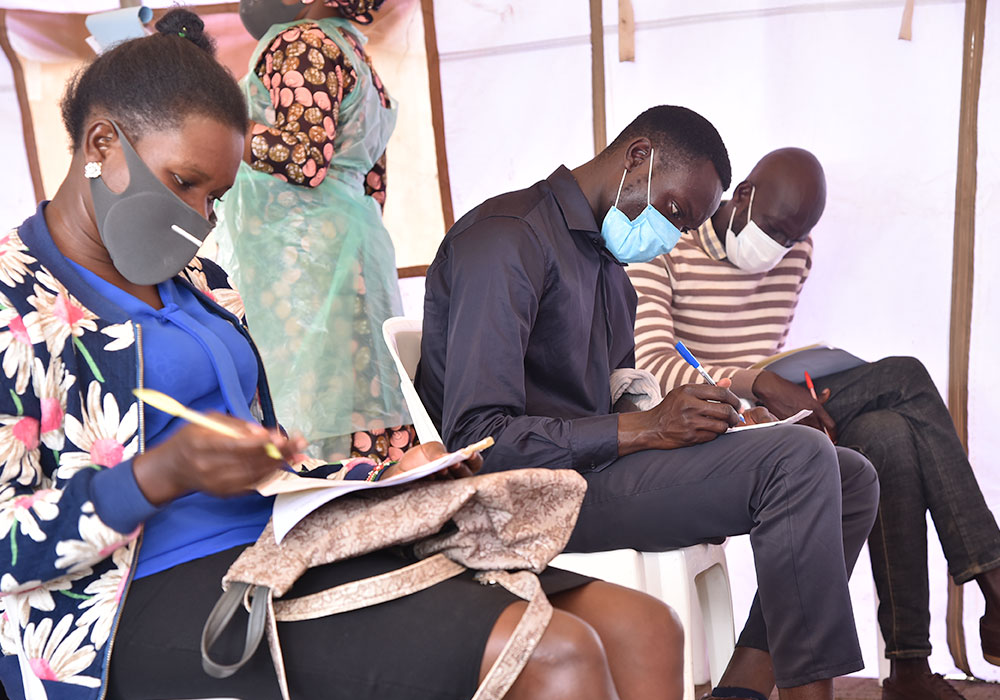
Public health law and COVID-19
Many countries have limited legislation in place to support detection, prevention and response to infectious diseases. Our legal and advocacy program equipped cities and countries to review their existing legal framework rapidly, fill gaps, and ensure that public health and social measures to address COVID-19 are implemented with international legal and ethical standards. We supported six countries in their effort to develop legal frameworks that allowed them to take protective action while protecting human rights. In these countries, we developed 29 legal guidance documents affecting more than 160 million people, and developed guidance on Effective Public Health Emergency Laws, which is being used to frame legislative reform.
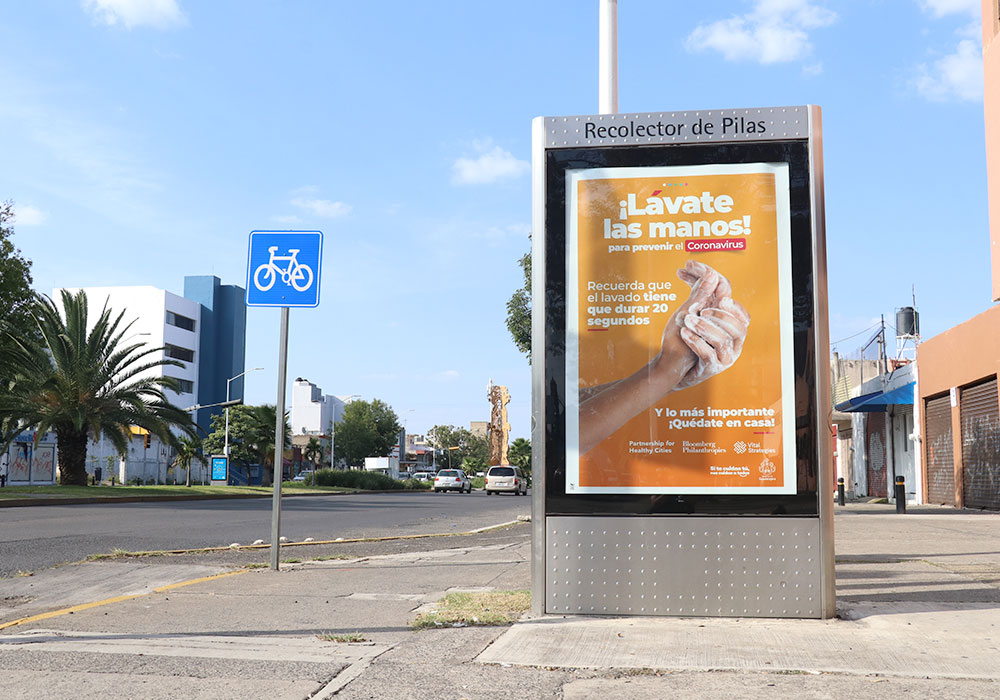
Strategic communications to save lives
The COVID-19 pandemic was accompanied by an infodemic, with competing information circulating at a rapid pace throughout the world. The communications team at Resolve to Save Lives and Vital Strategies addressed misinformation and filled a need for credible public health information by producing high-quality, evidence-based communications materials for a variety of audiences. We also supported governments to develop effective risk communications strategies, and shared our public health expertise in thousands of media interviews. We produced 339 communications products in 25 languages, supported 22 countries and 44 cities with mass media campaigns, and were mentioned 25,000 times in media outlets around the world.
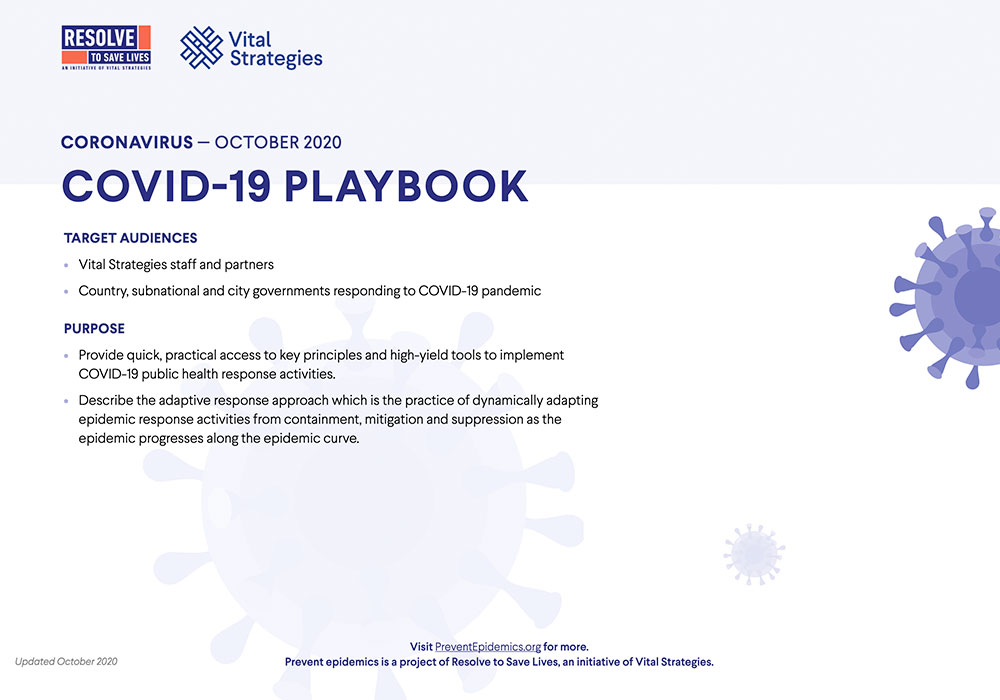
Supporting care for chronic disease patients during COVID-19
Resolve to Save Lives’ cardiovascular health team developed guidance on how to maintain life-saving hypertension care in the context of the COVID-19 pandemic. The team produced one-page fact sheets for both patients and primary health care providers on how to reduce risk of COVID-19 transmission which were translated into more than 15 languages and disseminated by partners around the world.
The team also created “Safe Route to Care: Primary health care redesign to protect chronic disease patients,” and “Leveraging Technology to Improve Health Care During the COVID-19 Pandemic and Beyond,” key resources in the Resolve to Save Lives Playbook for adaptive response to COVID-19.
Prevent Epidemics

Program management training for capacity building
In 2020 Resolve to Save Lives was proud to graduate the first cohort of 25 mid-level managers from the Program Management for Epidemic Preparedness course. The initial cohort represented 7 countries, and we are planning for a second cohort in 2021.

Accelerating the global health security agenda in Ethiopia
Resolve to Save Lives supported the Ethiopian Public Health Institute (EPHI) in establishing a National Action Plan for Health Security (NAPHS) Acceleration team, to ensure Ethiopia is better prepared for future epidemics.
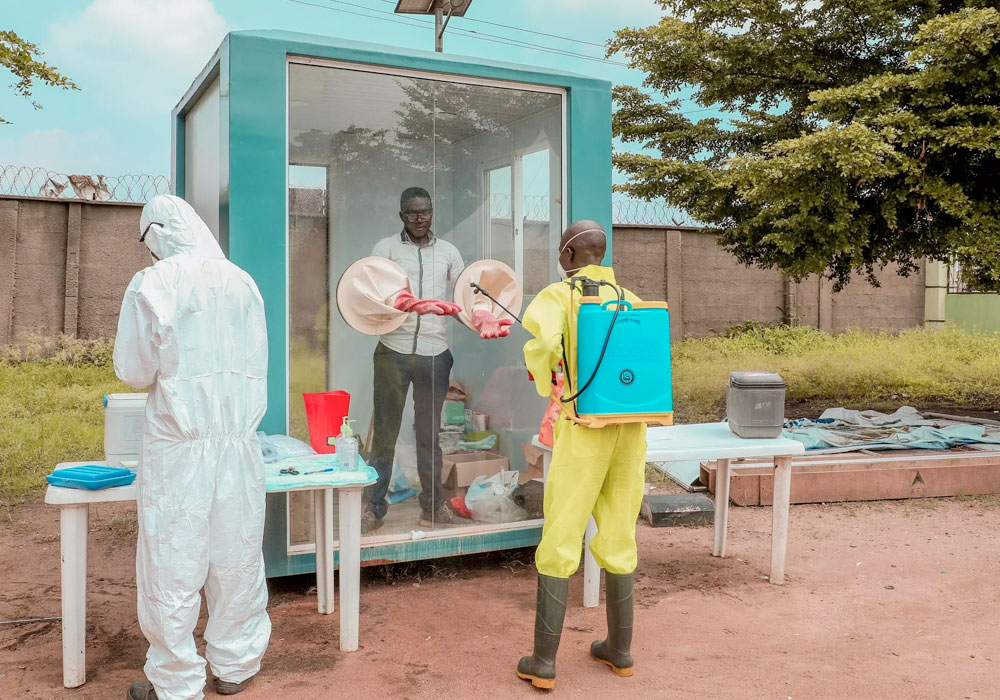
Emergency financing to improve epidemic response timeliness and capacity in Nigeria
Resolve to Save Lives partnered with the African Field Epidemiology Network (AFENET) to setup a rapid outbreak investigation fund at the Nigeria Centre for Disease Control (NCDC), which contributed to a reduction in outbreak verification to response time, from 6 days to only 2 days. As a reflection of the sustained investments in Nigeria’s systems to find, stop, and prevent epidemics, a midterm Joint External Evaluation (JEE) showed that Nigeria’s ReadyScore increased from 39 to 46, bringing them from the “Not Ready” category into the “Work to Do” category.
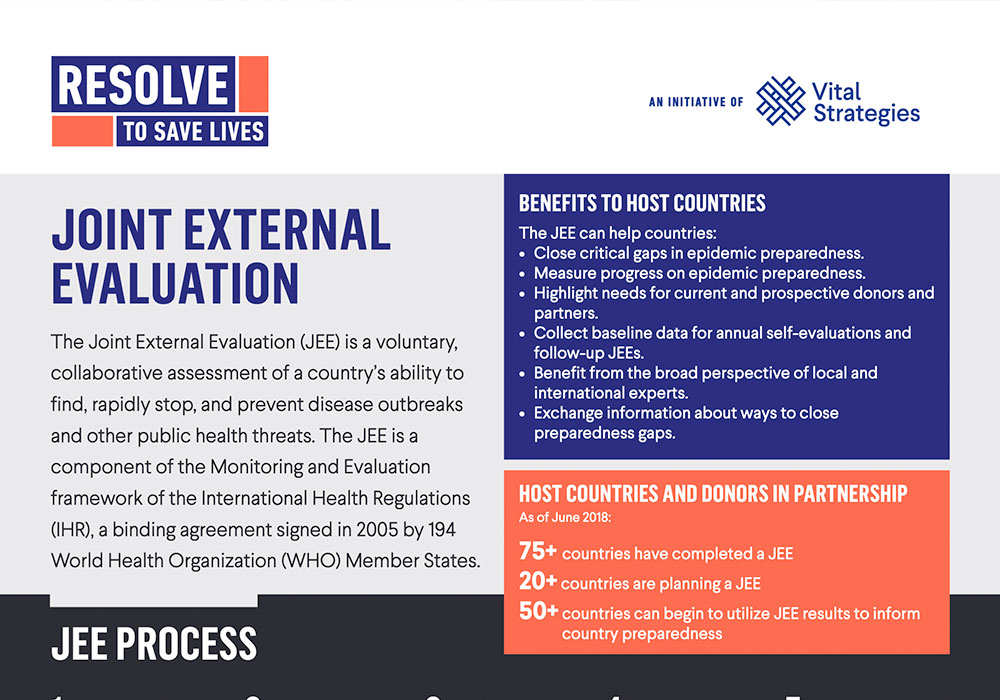
Enabling and evaluating preparedness in Liberia
A midterm Joint External Evaluation (JEE) was also conducted in Liberia, with Resolve to Save Lives’ support. Liberia’s midterm JEE score increased despite more rigorous scoring criteria, in part as a result of RTSL’s support for partner mapping and development of a 2020 operational preparedness plan.
Strengthening World Bank funding for enhancement of surveillance systems
Resolve to Save Lives provided targeted technical assistance to improve several African countries’ access to and utilization of World Bank Regional Disease Surveillance Systems Enhancement (REDISSE) funding. In Nigeria, REDISSE disbursements increased from 12% in mid-2019 to 28% in mid-2020; in Liberia, REDISSE disbursements increased from 12% in mid-2019 to 31% in mid-2020

Bolstering public health measures in Uganda
A Resolve to Save Lives legal advisor worked with Ministry of Health and Ministry of Justice and Constitutional Affairs to gazette more than 10 rules towards epidemic prevention measures. This catalyzed the initiation of the amendment of the Public Health Act. In addition, RTSL technically supported review of the multi-hazard preparedness and response plan, and contributed funding to establish two sub-national emergency operations centers
Cardiovascular Health
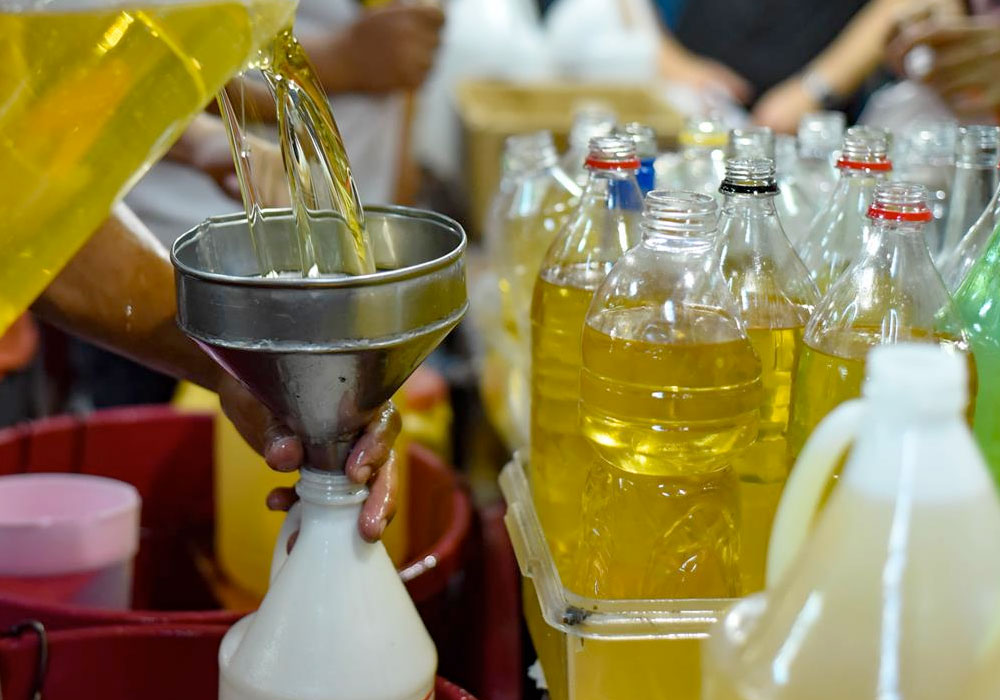
Trans Fat Elimination
- Second Annual Progress Report for the REPLACE Initiative – September 2020
- Resolve to Save Lives partnered with the World Health Organization to launch the second annual progress report for the REPLACE initiative in a virtual event, monitoring advances toward the elimination of artificial trans fat. Although 58 countries so far have introduced laws that will protect 3.2 billion people from the harmful substance by the end of 2021, more than 100 countries still need to take actions to remove these harmful substances from their food supplies. Dr. Tom Frieden also published an Op-Ed calling for the need to eliminate trans fat from the global food supply with the release of the second annual progress report.
- Supported the development and passage of best practice trans fat elimination regulations in Brazil and Turkey
- WHO First-Ever Certification Program for a non-Communicable Disease Program: Trans Fat Elimination
- Resolve to Save Lives supported the launch of WHO’s first-ever certification program for countries that have enacted best policies for eliminating trans fat in their countries. This is the first certification program addressing a risk factor for a non-infectious disease. Countries that have enacted best practice policies in eliminating trans fat from their food supplies will be invited to apply for this program.
- Front-of-pack label regulations in Mexico
- In Mexico, new labeling regulations establishing a trans fat warning label on the front-of-pack and mandatory trans fat content declaration on the back-of-pack were published in the Official Gazette on March 27, 2020.
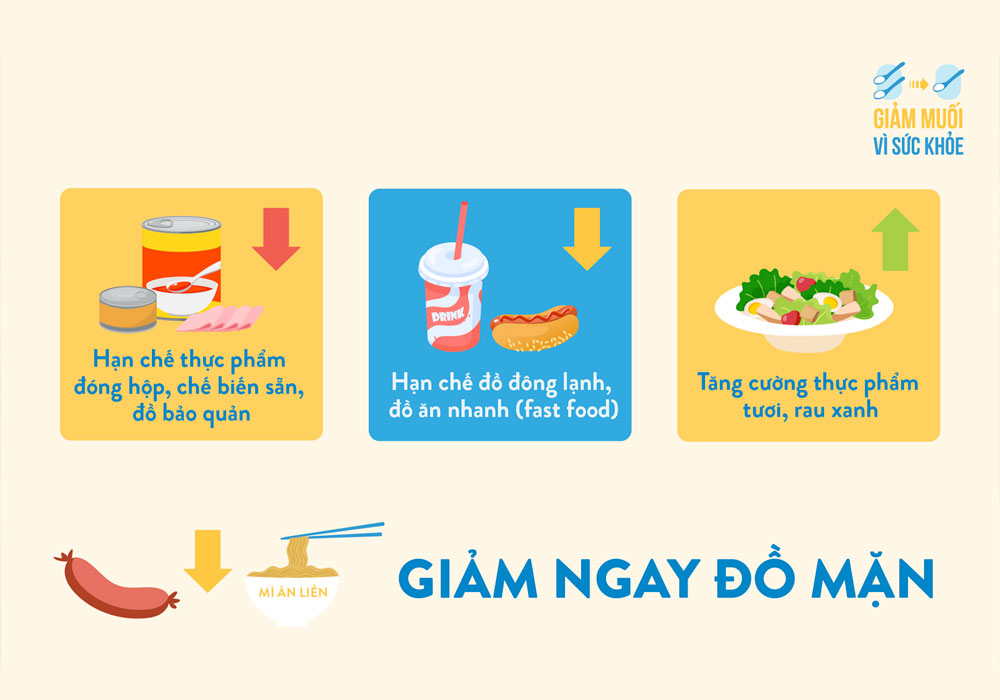
Sodium Reduction
- Support for public food procurement
- Launched four new projects on healthy public food procurement in Uganda, Togo, Nepal and the Philippines, and published a resource guide on health food procurement on the LINKS website
- Review Published in Nutrients (August 2020)
- In a review published in Nutrients, Resolve to Save Lives identified seven priority interventions to reduce salt intake and save lives: front-of-pack labeling, packaged food reformulation targets, regulating food marketing to children, taxes on high sodium foods, food procurement policies for public institutions, mass media campaigns and population uptake of low-sodium salt.
- Viet Nam Debuts First National Salt Reduction Mass Media Campaign
- In late July, partners in Viet Nam debuted “Reduce Salt by Half”, the country’s first major mass media public service announcement to depict the dangers of the high salt diet common in Viet Nam. Part of a two-month long media campaign, the public service announcement is the cornerstone of the government’s national advocacy effort to prompt actions to curb high salt consumption, which will also be supported by community-level education efforts. The 30-second public service announcement ran on national broadcast television and radio, and was featured on a dedicated social media campaign called Lower salt for better health.

Hypertension Control
- Over 1.3 million individuals have received hypertension care and treatment since the launch of RTSL’s work
- Philippines launched hypertension activities (November 2020)
- Working with the WHO, RTSL is now supporting the launch of hypertension diagnosis, care and treatment in West Visayas, with plans to scale up to additional areas in 2021.
- Ethiopia launched hypertension activities
- Resolve to Save Lives is working in Ethiopia to support adoption of evidence-based hypertension guidelines, improve access to effective anti-hypertension treatment by working through demonstration-to-scale projects in 62 health centers and ten primary hospitals in five regions and two city administrations, with a catchment population of two million people.
- Nigeria Hypertension Control Initiative Launch (November 2020)
- Resolve to Save Lives launched the Nigeria Hypertension Control Initiative (NHCI) with the Federal Ministry of Health in Ogun and Kano states, starting with 12 health care facilities that will scale up to over 600 facilities in both states. This program is designed to improve the diagnosis, treatment, and control of blood pressure. It will include comprehensive hypertension education, care, and treatment led by local health care workers. Simple hypertension treatment protocols will be implemented, and basic equipment and technology will be provided to diagnose and monitor response to therapy will be made available at these facilities. This is part of a long-term goal to implement models of team-based care approach and patient-centered care in all targeted facilities.
- Continued support for expansion of the India Hypertension Control Initiative (IHCI)
- IHCI is now supporting hypertension care and treatment to more than 900,000 patients in 10 states across 2,884 health facilities, with plans for progressive expansion over 2021.
- Supporting HEARTS expansion in Mexico
- Mexico launched a pilot hypertension control program based on the WHO HEARTS initiative in five states: Sonora, Chiapas, Tabasco, Yucatan, and Campeche in February.
- Simple App expands to help improve hypertension
- The Simple app launched in Bangladesh in February 2020. RTSL trained staff on Simple and observed as clinics introduced the app to work to help manage blood pressure measurements and medications.
- To support COVID response in India, IHCI launched a telemedicine feature on the Simple app in two states in India, which quickly expanded to more than 200 facilities in the first few weeks.
- The Simple App won the “Best in Show” prize at the IxDA show in Milan, which recognizes excellence in interaction design, or the way users interact with products.
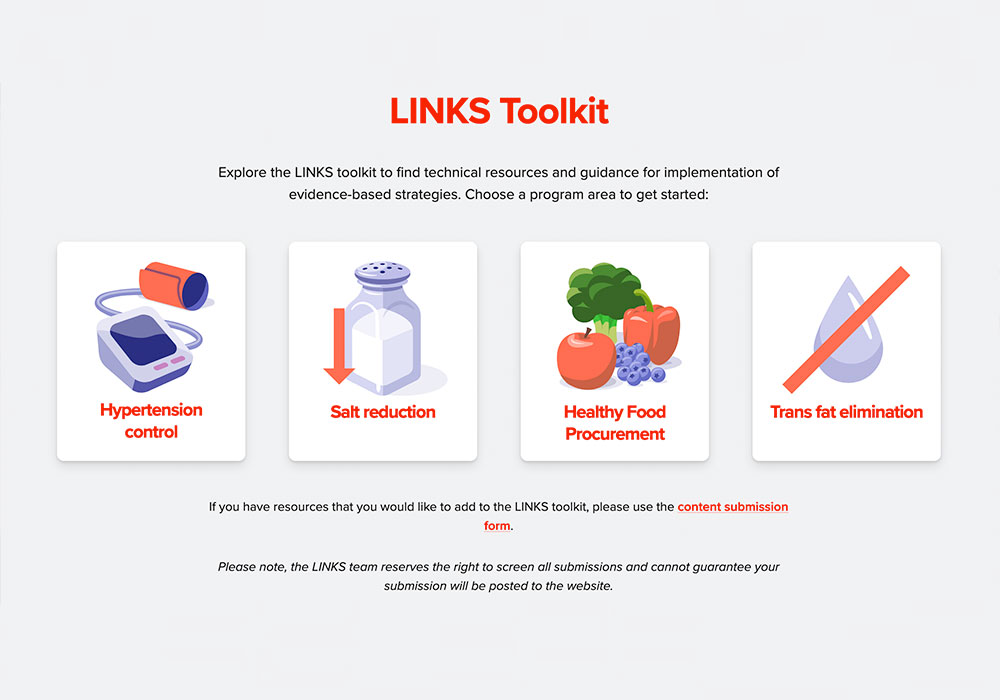
LINKS Community
- LINKS launches a new and improved toolkit
- LINKScommunity.org, the global community of cardiovascular health professionals maintained by Resolve to Save Lives, WHO and CDC Foundation, launched a redesigned toolkit. The new toolkit interface allows users to easily search and filter resources related to hypertension control, sodium reduction, and trans fat elimination.